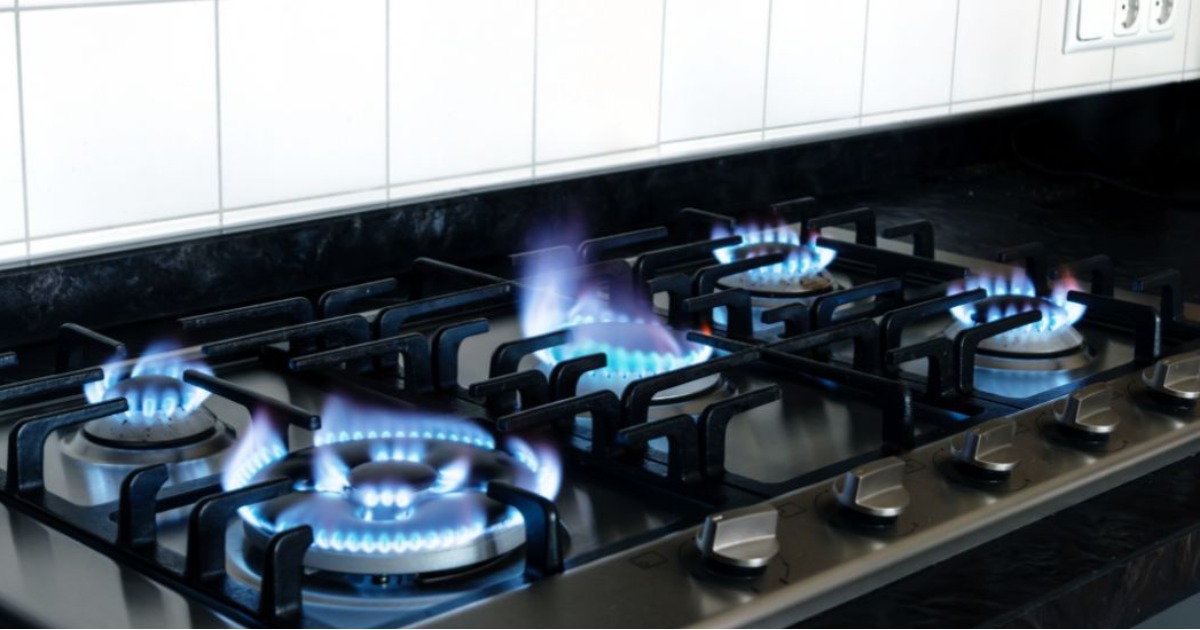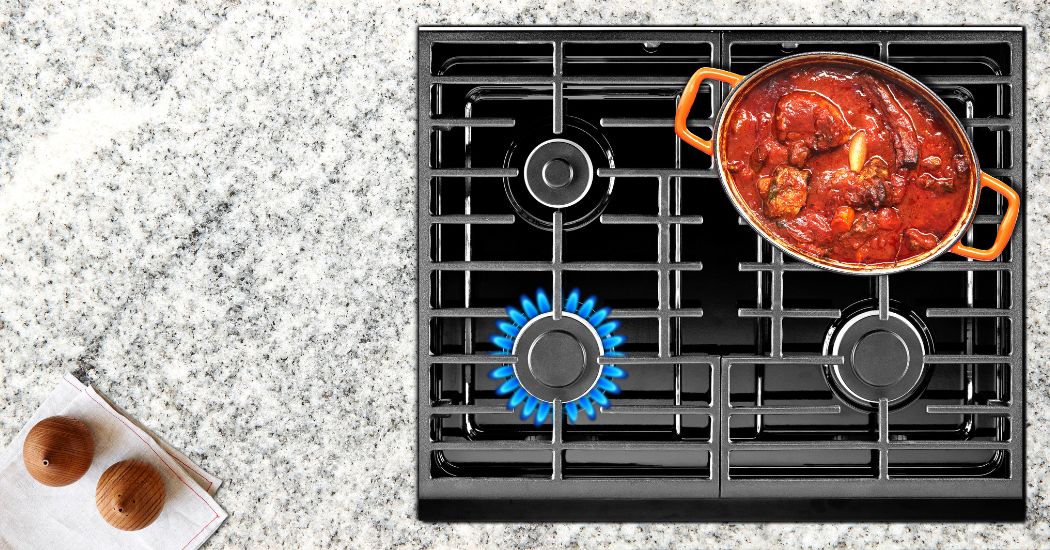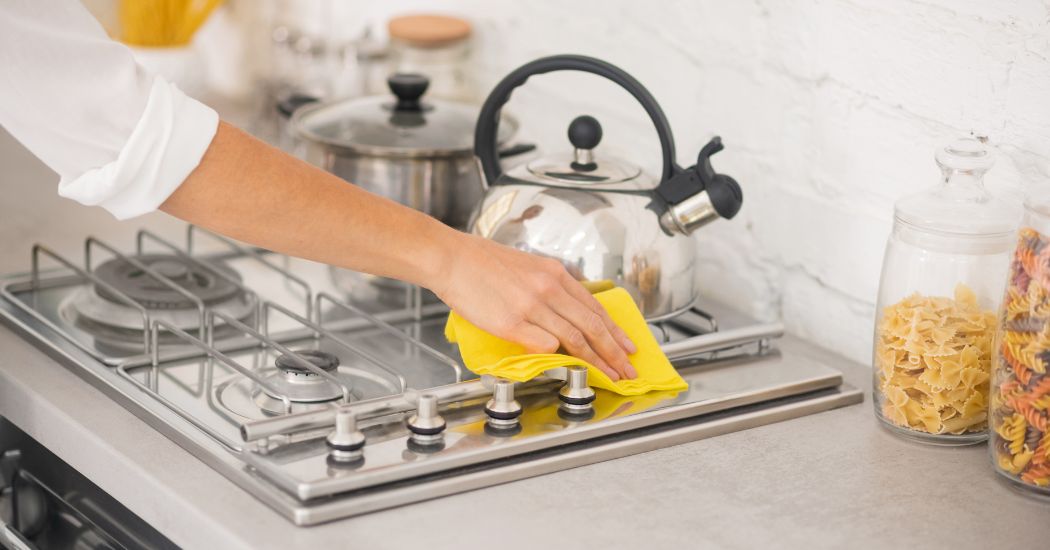Are Gas Stoves Bad for Your Health? An In-Depth Answer in 2023
- 01 Jan 2023 23:15
- 1647

Are gas stoves bad for your health? It's a question many people have been asking for a long time. We have used gas stoves in homes for centuries, and the effects of cooking on gas are now under research.
In this blog post, we'll dive into the science behind gas stoves and their potential impacts on health.
We'll also explore the potential risks associated with gas stoves and look into the safety measures in place to protect consumers from the potential dangers of gas stoves. Let's get started to learn more!
Are Gas Stoves Bad for Your Health?
The answer is yes. The presence of natural gas and its byproducts, including carbon monoxide and nitrogen dioxide, can cause various health concerns.
Some evidence suggests that long-term exposure to these byproducts may lead to respiratory issues and other health risks.
Respiratory Effects
If not used properly, gas stoves can have a detrimental effect on your health.
In particular, gas stoves' most common respiratory effects relating to carbon monoxide and nitrogen dioxide production can be hazardous to humans.

Carbon monoxide is an odorless, tasteless gas that can cause symptoms such as headaches, dizziness, nausea, and even death.
Nitrogen dioxide is a chemical compound released when gas burns. It links to various respiratory problems, including difficulty breathing, coughing, and irritation of the eyes, nose, and throat.
To mitigate the potential health risks associated with gas stoves, it is vital to regularly check your stove's exhaust flue and venting system to ensure it is working correctly.
Methane and Hazardous Air Pollutants
Gas stoves have long been a staple in many households, providing a reliable, low-cost cooking option. However, there is evidence that they may pose a risk to our health due to the emission of pollutants.
The most common pollutants emitted from gas stoves are methane and hazardous air pollutants (HAPs).

These pollutants can cause various respiratory and cardiovascular problems and other health issues such as headaches and nausea.
Long-term exposure to these pollutants can even increase your risk of developing certain cancers. Knowing the potential risks of using gas stoves and taking steps to minimize exposure is essential.
This includes keeping gas stoves well-maintained, regularly inspecting and replacing filters, and using adequate ventilation in the kitchen to prevent the buildup of potentially hazardous gases.
Have a Gas Stove? How to Protect Household Health?
Gas stoves are handy appliances that people can find in many homes, but it is crucial to ensure that their use does not negatively impact the health of household members.
Follow these tips to ensure the safety of your gas stove and protect the health of your family:
Ensure Your Kitchen Has Adequate Ventilation
Cooking with the windows open is a great idea. Installing exhaust fans ensures any stale air to push out the window.
This reduces exposure to harmful air at higher concentrations in enclosed locations, but it will add to outdoor pollution.
Open the windows to ensure good airflow, reducing the amount of gas in the air and helping prevent the accumulation of combustion products.
Install Air Purifiers
While air purifiers cannot eliminate indoor air pollution, they do help. Pick a cleanser with a high clean air delivery rate (CADR) appropriate for the room's dimensions.
Since air purifiers are portable, you can keep one in the kitchen during the day and in the bedroom at night.
When the filters become dirty, make sure to change them.
Perform Regular Maintenance on Your Gas Stoves
Regularly check the gas lines for leaks and cracks, and ensure all fittings are securely connected.

Ensure that the appliances are regularly serviced by a professional, and replace old and worn parts when necessary.
Keep the Area Around the Stove Clean
It is vital to keep the stove and the area around it clean. Grease, food, and dirt can build up over time and create a fire hazard.
Make the Switch to Electric Cookware
Switching to electric appliances for cooking can be an effective way to do this.
Electric devices are generally safer than gas stoves because they don't require burning fuel. Instead, they use electricity to heat up and cook food.
Electric appliances are often more energy-efficient and cost-effective than gas stoves, saving you money in the long run.
Furthermore, electric appliances are generally easier to use and maintain, and many offer additional features like timers and auto-shutoff capabilities, which can benefit busy households.
FAQs
Do gas stoves emit carbon monoxide?
The answer to whether or not gas stoves emit carbon monoxide is yes. Gas stoves emit carbon monoxide when they are not adequately vented or malfunction.
Do gas stoves cause indoor air pollution?
The answer is yes. Gas stoves can source pollutants such as nitrogen dioxide, formaldehyde, and carbon monoxide.
Can you get carbon monoxide poisoning from a gas stove?
Yes, it is possible to get carbon monoxide poisoning from a gas stove.
Carbon monoxide is an odorless, colorless, and tasteless gas released when fuels such as wood, propane, natural gas, and gasoline burn incompletely.
If you don't ventilate a gas stove, the carbon monoxide produced can build up to dangerous levels, leading to carbon monoxide poisoning.
Do gas stoves cause cancer?
The short answer to whether gas stoves cause cancer is no, they do not.
However, some potential risks are associated with gas stoves that come from the byproducts of combustion, such as carbon monoxide, nitrogen dioxide, and formaldehyde.
Exposure to these substances over a long period can lead to adverse health effects, including increased cancer risk.
Is it healthier to cook with gas or electricity?
It is healthier to cook with electricity because it is well-established that electric stoves produce less air pollution than gas burners.
As a result, there is less chance of exposure and subsequent health problems.
Conclusion
The potential health risks can be managed by regularly cleaning your stove and its components, using proper ventilation when cooking or using air purifiers, and changing your stove to electric.
By following these tips, you can enjoy the convenience of a gas stove while minimizing any potential health risks.
Thank you for reading the post "Are gas stoves bad for your health?"!
